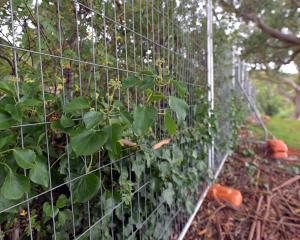
It was announced yesterday the Dunedin City Holdings Ltd group had recorded a six-month after-tax surplus of $3.8 million for the period ending December 2017.
The result was down slightly from the corresponding period in the previous year, when DCHL recorded an after-tax surplus of $4.86 million.
However, council chief executive Sue Bidrose said the profits did not mean ratepayers could expect money from the companies to start flowing again.
Council-owned companies such as Aurora paid an annual dividend to their parent body, Dunedin City Holdings Ltd, which in turn made dividend and interest payments to its shareholder, the council.
The money helped ease the pressure for rates rises, but since 2011 DCHL's total annual payment had dropped from $23.2 million a year to $11.152 million in 2015-16, when dividends ceased completely.
The change reflected the need to get DCHL's books in order - after years of borrowing to pay dividends - and reinvest in Aurora's network, it was said at the time.
DCHL had predicted a gradual increase in dividends to the council again, from $946,000 in 2017 to $1.3 million by 2018-19.
Instead, the council's latest 10-year plan - covering the period to 2028 - included no dividends from the companies.
Dr Bidrose said that was because the council wanted to take a conservative approach to ensure Aurora in particular, which was tackling a substantial maintenance programme, was on a sustainable footing.
She was confident dividends would return when the long-term budget was next revisited in three years' time.
''We are pretty sure in three years' time we will know exactly when the dividends will come back in.''
In the meantime, DCHL would continue to make interest payments to the council worth $5.9 million a year.
The half-year company results released yesterday showed an after-tax surplus for City Forests of $6.87 million, up from $3.5 million for the same period the previous year, and of $2.169 million for Dunedin Airport, up from $1.72 million the previous year.
Aurora and Delta's six-month results both dipped slightly from the corresponding period last year, following the separation of the two companies' boards, staffing and management structures.
Delta's after-tax surplus was $1.67 million, down from $1.84 million, while Aurora's was $3.15 million, down from $4.03 million.
Dunedin Venues Ltd, the company running Forsyth Barr Stadium, recorded a small but improving six-month after-tax profit of $298,000, up from $77,000 for the same period the previous year.
Dunedin Railways Ltd - formerly Taieri Gorge Railway Ltd - recorded a worse-than-expected after-tax loss of $634,000, up from the previous year's six-month $470,000 loss.
That was due in part to last year's July storm, which cost the company $385,000 in track repairs and $175,000 in lost income.
Dunedin Stadium Property Ltd - formerly Dunedin Venues Ltd, which owns the stadium building - posted a six-month loss of $4.2 million, as expected, up from $3.2 million. That largely comprised a non-cash book loss of $3.5 million a year, representing depreciation, staff said.
DCHL chairman Graham Crombie said he was pleased with the ''positive financial result once again''.
''Our half-year result is in line with our budget projections and our continued strong operating cash flow will provide a stable basis for the coming months and years.''
City Forests' result was primarily driven by strong international and domestic markets, and favourable shipping costs, while Dunedin Airport enjoyed an increase in landing charges and passenger numbers.
Aurora's increasing investment in its network maintenance showed in its capital expenditure, up nearly $16 million to $38.07 million, and higher group debt, while Delta's revenue was down largely due to the new contracting arrangements between it and Aurora.
Mr Crombie says the outlook for the group remained ''stable''.












